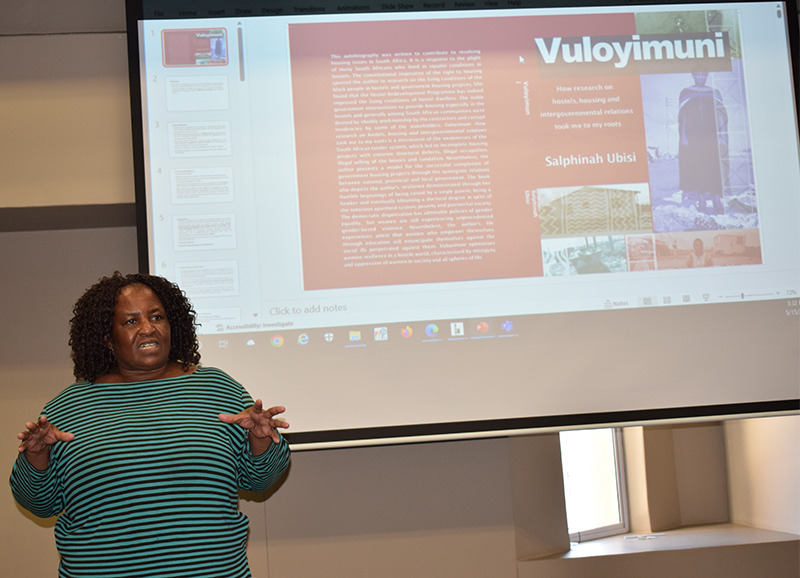By Gofaone Motsamai
Years of study, fieldwork and reflection have culminated in a book that combines experience and policy on a touchy subject in South Africa, housing.
Dr Salphinah Vuloyimuni Ubisi, a lecturer in the subject group Public Administration and Local Government at the North-West University (NWU), described how her work had evolved into a project that reconnected her with her heritage during a seminar on 15 May.
Drawing from her master’s and doctoral research, Dr Ubisi shared the process of turning work into a book that is both academic and autobiographical.
Her master’s research examined the redevelopment programme of the Kagiso hostels in Mogale City Local Municipality, while her PhD focused on a case study on the provision of adequate housing in Bushbuckridge Local Municipality.
She explained how these two studies formed the base of her book, titled Vuloyimuni, her middle name. It explores housing and governance and revisits her birthplace and identity. “Conducting research in Bushbuckridge was more than just a study – it was a return,” she said. “The data I collected helped me understand the lives of people in the community, many of whom reminded me of my own family and past.”
Dr Ubisi’s fieldwork gave insight into the strengths and limits of housing programmes in South Africa. She noted that while officials worked within mandates and frameworks, the housing reflected both strengths and flaws, showing challenges that affect service delivery at community level.
“The houses had water and electricity, but some had cracks, leaks and roofs that could not withstand weather,” she explained. “These issues reflect the tensions in housing efforts.”
Through an autoethnography approach, Dr Ubisi merged findings with lived experience, turning her thesis and dissertation into a story. The book offers academic value and a record of perseverance, memory and cultural return.
In her reflections during the seminar, she spoke about starting a business in 1995 to fund her studies and the toll of revisiting hardships during the writing. “This book is more than a result of research – it is a tribute to the people and places that shaped me.”

Dr Salphinah Vuloyimuni Ubisi reflects on the project that reconnected her with her heritage.
